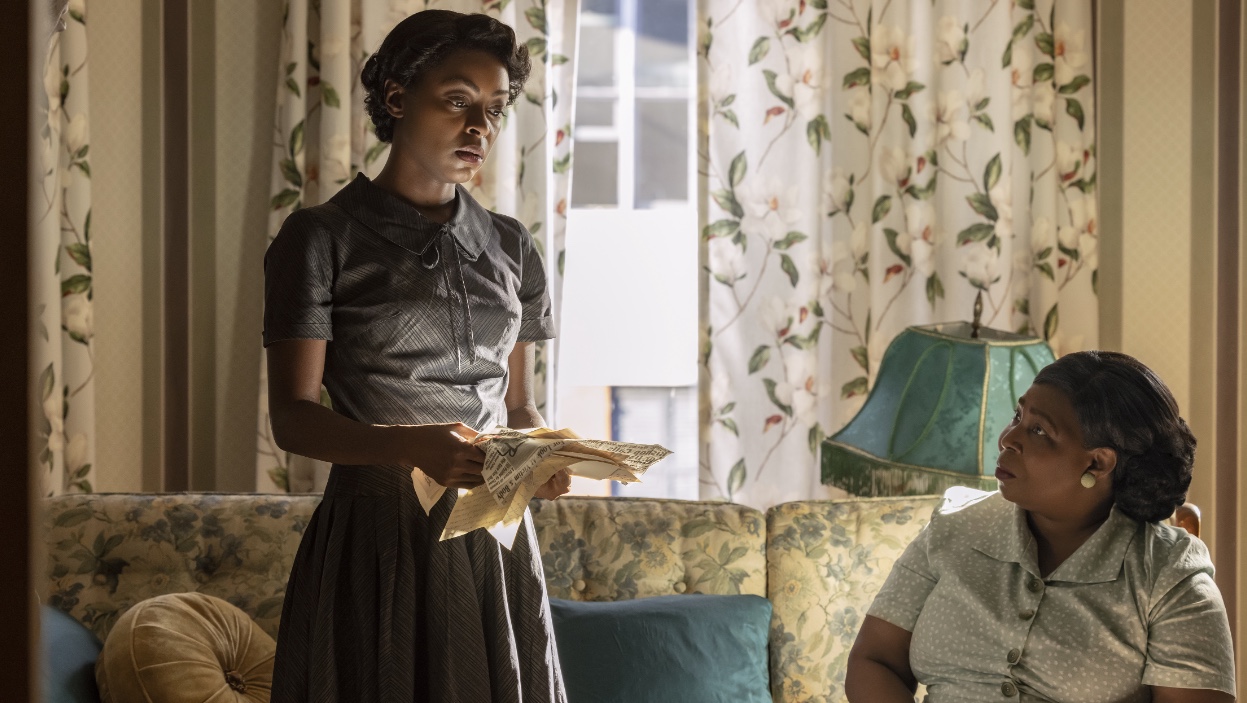
Film Review: Till
Film Reviews
Till
Director: Chinonye Chukwu
Eon Productions and Whoop, Inc.
In Theaters 10.28
In terms of raw power and timely significance, you’re not likely to see another major release this year that even comes close to Till, the new film from acclaimed director Chinonye Chukwu. Whether that makes it a truly great film might be more open for debate.
While Till is, of course, a chronicle of the tragic and unspeakable lynching of 14-year old Emmett Till (Jalyn Hall) in 1955, it’s really the story of Mamie Till-Bradley (Danielle Deadwyler, The Harder They Fall), a woman who gave birth to a son who left this world far too soon and who gave voice to a movement that shook the world, though its work is far from finished. When her son is brutally murdered by white supremacists in Mississippi for whistling at a white woman, Mamie wants nothing more than to be alone with her unfathomable grief. Instead, she faces the horrors of the moment, as well as a nation that would dare to turn a blind eye, by holding an open casket funeral so that everyone can see the gruesome truth. Mamie’s fight doesn’t end there as she must summon the courage to testify against her son’s killers.
Mamie’s approach to her fight was direct and unflinching, and Chukwu takes her cues directly from her protagonist. While the director spares us from having to watch the murder itself, subtlety isn’t the name of the game here, and no punches are pulled in presenting the obvious fact that the very same hate, paranoia and unbridled evil that killed Emmett Till not only continues in America today, it’s en vogue and on the ballot this November. The references to voter suppression, the wild conspiracy theories voiced by the racist Sheriff Strider (Brendan Patrick Fletcher), who testifies that he doesn’t believe the body was really that of Emmett Till, and the real-life efforts to create a “victims on both sides” mentality may seem a bit on the nose, yet they are all documented fact.
In terms of the stylistic approach, Till is conventional to the point of being old fashioned at times, though most of it works. Chukwu is a bit over reliant on Abel Korzeniowski‘s emotional musical score, and it verges on overpowering the narrative at times. While part of me wanted to see the kind of cinéma vérité style that put us right into the middle of the story in films ranging from Schindler’s List to Detroit, it’s been a week since I saw Till, and I’m just barely getting my emotionally bearings back together enough to sleep at night. The slight distance from reality that is provided by the more traditional style isn’t entirely unwelcome.
Deadwyler’s portrayal of Mamie personifies both dignity and heartache, and the choice to limit the moments of histrionics as Mamie deals with the unimaginable proves to be the right one. It’s her sheer tenacity, as well as the strength that she draws upon through her love for her son and the unwavering belief in the righteousness of her cause, that make Mamie a figure that is impossible to forget. The surprising composure she keeps through most of the film makes her moments of breaking down all the more devastating. Till is not, however, a one-woman show, and John Douglas Thompson deserves to be in the Oscar conversation as well for his performance as Moses Wright, Emmett’s Uncle, who watched as Emmett was dragged from his house at gunpoint. The pain, sorrow and guilt that Thompson brings starkly to life is stunning, and it’s easily one of the year’s best performances.
Whether or not Till is among the most cutting-edge films of the year in terms of technique and storytelling, it’s a powerful experience with a sense of urgency and truth that demands to be seen immediately. At a time when so many people are either ignorant to the meaning of the words “Black Lives Matter” or choose to feel threatened by them, Till is a hard-hitting reminder of why such a seemingly obvious sentiment ever needed to be expressed in the first place and still does to this day—and still will be until everyone believes it. –Patrick Gibbs
More from Patrick Gibbs:
Film Review: Black Adam
Film Review: The School for Good and Evil